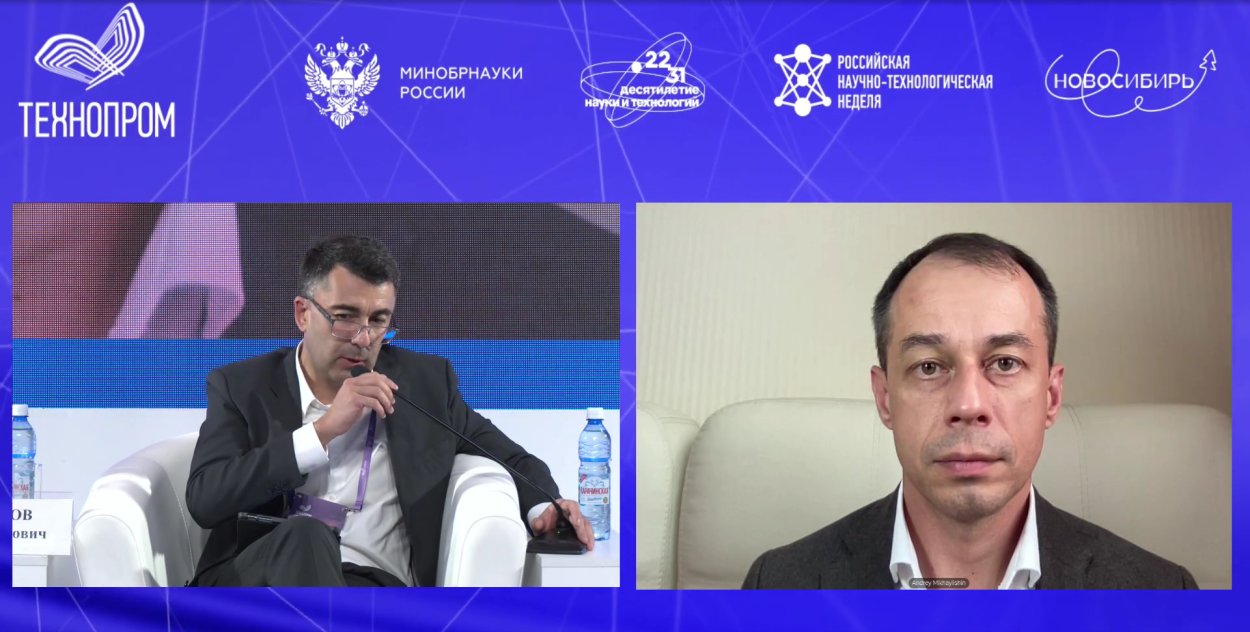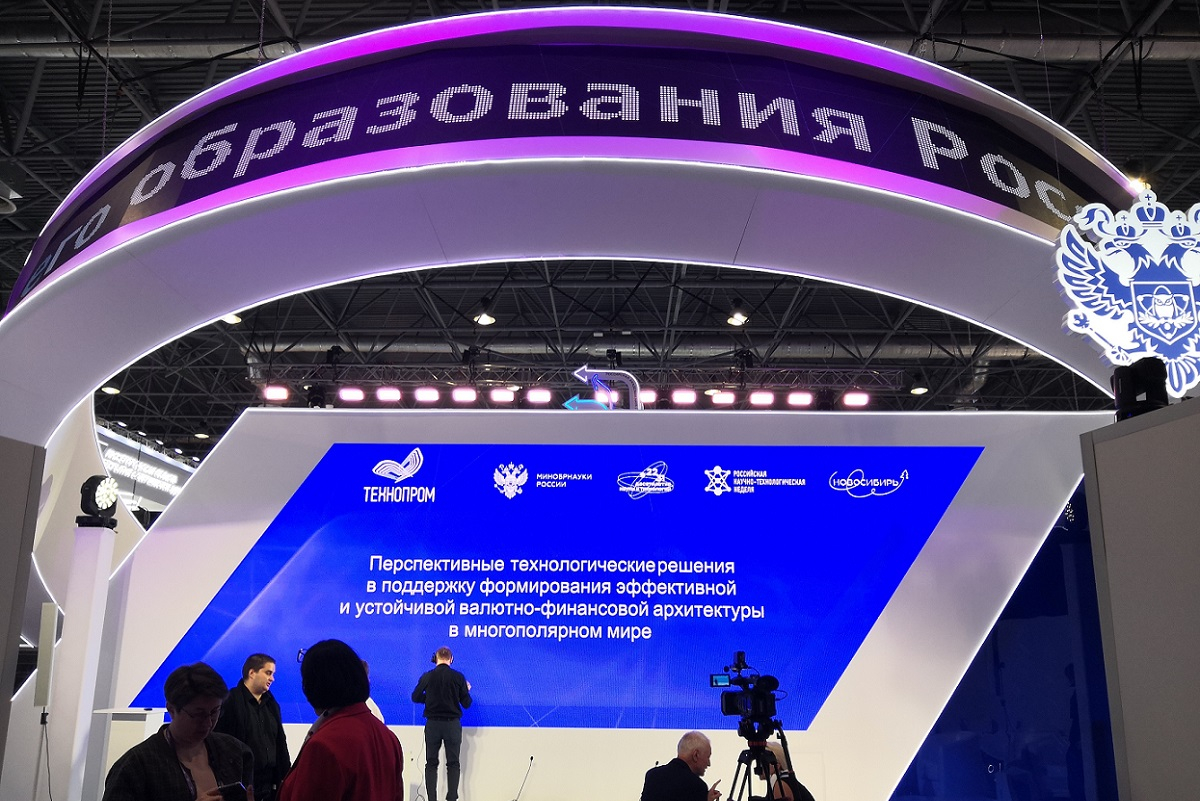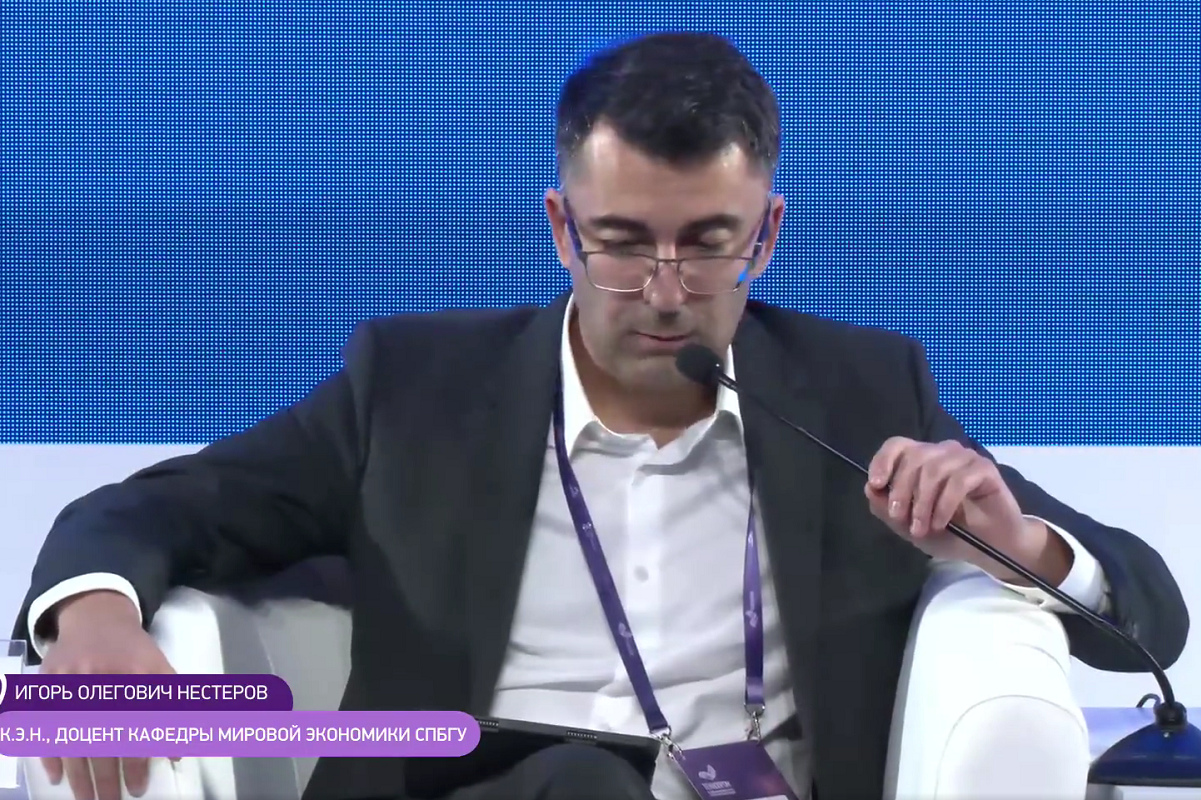Technoprom-2024: experts from St Petersburg University present a new version of the Russian analogue of SWIFT
At the 11th International Forum of Technological Development "Technoprom-2024", the updated Decentralised Interbank Messaging System (DCMS_2.0) was presented. The service will enable multilateral digital netting and clearing, including for international transactions.
The product was presented during the panel discussion "Perspective technological solutions to support the formation of an effective and sustainable monetary and financial architecture in a multipolar world", initiated and organised by St Petersburg University. The meeting was moderated by Igor Nesterov, Associate Professor in the Department of World Economy at St Petersburg University.
The key topic of discussion was the possibility of introducing multilateral digital netting and clearing into the international settlement system. Artem Kalikhov, CEO of WEB3_Tech, a leading domestic developer of blockchain technology, shared his vision of the architecture of an alternative system of cross-border settlements using digital clearing. The speaker noted that such an innovation will reduce the number of cross-border payments in relation to the volume of international transactions.

Aleksandr Kireev, Technical Director of the Distributed Ledger Technologies Centre at St Petersburg University, announced the release of an updated version of the Decentralised Interbank Messaging System, i.e. DCMS_2.0. At present, the DCMS is a software package based on blockchain technology that enables decentralised, encrypted exchange of financial messages between participants who voluntarily connect to the service. The main difference of the system from the existing centralised analogues — the Society for Worldwide Interbank Financial Telecommunication (Swift), the Russian System for Transfer of Financial Messages (SPFS), the Chinese Cross-border Interbank Payment System (CIPS), and the Iranian System for Electronic Payments Messaging (SEPAM) — is the impossibility to exclude or completely disconnect participants from the system due to the absence of a single owner.
The updated version of DCMS_2.0 will include multilateral digital netting and clearing functionality, including for international transactions. Participants connected to the service will be able to automatically set off claims and liabilities in a configurable mode with the final payment to another jurisdiction at the end of the period of mutual settlements to balance the formed balance. The expert noted that the updated product, as well as its current version, is planned to be distributed with open source code. No fees will be charged and voluntary participants of the service will incur expenses only for integration with in-house IT systems and acquisition of server capacity.
The DCMS current version is already being actively tested in alternative mechanisms of international settlements within the BRICS+ framework, as Andrey Mikhailishin, Head of the BRICS PAYMENTS & FINTECH Task Force of the Financial Services and Investment Working Group of the BRICS Business Council, told the meeting participants. Fedor Ivanov is Director of Analytics at Shard, a company specialising in the analysis and risk assessment of cryptocurrency transactions. He noted in his speech that not only traditional fiat money, but also central bank digital currencies and cryptocurrencies can technically become the instrument of final international settlements based on the results of multilateral digital netting and clearing. The technical solutions used in the DCMS and DCMS_2.0 will allow the full range of existing payment instruments to be used.
At the same time, speakers drew attention to the legal barriers to the introduction of the digital clearing mechanism. Andrey Lisitsyn is Managing Director for Financial Policy and Financial Markets at the Russian Union of Industrialists and Entrepreneurs. He noted that regulatory practice does not always keep pace with the development of digital technologies. This is because new innovative financial mechanisms proposed by the business community to overcome the inefficiencies and vulnerabilities of the traditional cross-border settlement system are often subject to legal uncertainty. In the speaker’s view, there is a need for a legal regime that allows for rapid testing of new solutions under the supervision of the regulator, but without the possibility of blocking the project at the outset. Whether the experimental legal regime will provide such an opportunity is still not very clear, Andrey Lisitsyn summed up.
During the discussion, experts in cryptocurrencies and digital currencies from central banks, together with representatives of leading Russian developers of IT solutions based on blockchain technology, considered the disadvantages and critical vulnerabilities of the traditional system of cross-border settlements based on the infrastructure of interbank correspondent relations. The participants also presented their own developments and proposals for the development of alternative mechanisms of international settlements using new innovative forms of money and digital financial assets.
At the end of the discussion, it was recognised that the transformation of the existing system of international settlements under the influence of the technological factor is inevitable. This thesis was expressed by Professor Artem Genkin, the author of numerous monographs on the impact of technology on financial systems.
The participants in the event expressed their readiness to share their proposals and developments in the field of cross-border settlements with all interested companies, financial organisations and government agencies.



